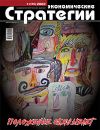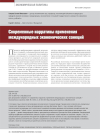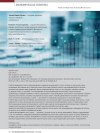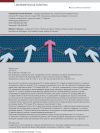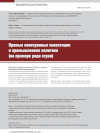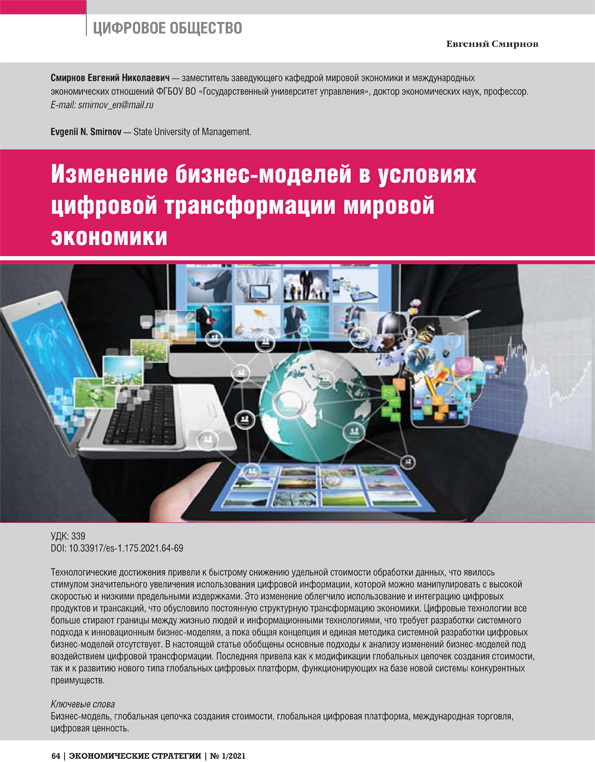Современные нарративы применения международных экономических санкций
DOI: https://doi.org/10.33917/es-5.185.2022.22-29
В последние годы в практике регулирования экономических отношений между странами резко возросла роль санкционных ограничений, применение которых детерминировано многими факторами. Вместе с тем в условиях обострения геополитической конкуренции, роста волатильности мировой экономики динамика использования санкций вызывает все больше вопросов. С одной стороны, экономические санкции являются инструментом принуждения для целевых стран, а с другой — делают международный обмен и трансграничную мобильность фактора все более уязвимыми. Неоднородный характер воздействия экономических санкций на страны-отправители и страны-мишени не позволяет говорить о том, что санкции являются однозначным инструментом эффективной торговой политики. В статье проанализированы ключевые нарративы режимов экономических санкций на современном этапе во всем их многообразии, новые формы и механизмы санкций, а также их последствия для различных аспектов жизни мирового сообщества.
Источники:
1. Spiegelberger W.R. Anatomy of a Muddle: U.S. Sanctions against Rusal and Oleg Deripaska [Электронный ресурс] // Russia Political Economy Project, Foreign Policy Research Institute. April 29, 2019. URL: https://www.fpri.org/article/2019/04/anatomy-of-amuddle-u-s-sanctions-against-rusal-and-oleg-deripaska/
2. Sanger D.E., Benne r K., Goldstein V. Huawei and Top Executive Face Criminal Charges in the U.S [Электронный ресурс] // New York Times. January 28, 2019. URL: https://www.nytimes.com/2019/01/28/us/politics/meng-wanzhou-huawei-iran.html.
3. Hufbauer G.C., Jun g E. What’s new in economic sanctions? // European Economic Review. 2020. Vol. 130. Iss. C. P. 103572.
4. Bapat N.A., Heinric h T., Kobayashi Y., Morgan T.C. Determinants of Sanctions Effectiveness: Sensitivity Analysis Using New Data // International Interactions. 2013. Vol. 39 (1). P. 9–98.
5. Early B.R., Spice R. Economic Sanctions, International Institutions, and Sanctions Busters: When Does Institutionalized Cooperation Help Sanctioning Efforts? // Foreign Policy Analysis. 2015.Vol. 11 (3). P. 339–360.
6. Peksen D. Autocracies and Economic Sanctions: The Divergent Impact of Authoritarian Regime Type on Sanctions Success // Defence and Peace Economics. 2017. Vol. 30 (3). P. 253–268.
7. Connolly G.E. Economi c Sanctions. Agencies Assess Impacts on Targets, and Studies Suggest Several Factors Contribute to Sanctions’ Effectiveness // Report to Congressional Requesters. GAO-20-145. United States Government Accountability Office (GAO). October, 2019. P. 19.
8. Krustev V.L., Morgan T. C. Ending Economic Coercion: Domestic Politics and International Bargaining // Conflict Management and Peace Science. 2011. Vol. 28 (4). P. 351–376.
9. Nooruddin I., Payton A.L . Dynamics of Influence in International Politics: The ICC, BIAs, and Economic Sanctions // Journal of Peace Research. 2010. Vol. 47 (6). P. 711–721.
10. Golliard M.M. Economic S anctions: Embargo on Stage. Theory and Empirical Evidence. Fribourg, University of Tampere. January, 2013. P. 107, 108.
11. Le Blanc D. Towards inte gration at last? The sustainable development goals as a network of targets // Sustainable Development. 2015. Vol. 23. P. 176–187.
12. Afesorgbor S.K., Mahadeva n R. The impact of economic sanctions on income inequality of target states // World Development. 2016. Vol. 83. P. 1–11.
13. Fu Q., et al. The impact o f international sanctions on environmental performance [Электронный ресурс] // Science of the Total Environment. 2020. Vol. 745. DOI: 10.1016/j.scitotenv.2020.141007.
14. Gutmann J., et al. Precisi on-guided or blunt? The effects of US economic sanctions on human rights // Public Choice. 2020. Vol. 185 (1). P. 161–182.
15. Kohl T. In and out of the p enalty box: U.S. sanctions and their effects on international trade. Chapter 21. P. 338–410. In: Van Bergeijk P.A.G. (ed.) Research Handbook on Economic Sanctions. Edward Elgar Publishing. 2021. 496 p.
16. Grauvogel J., Attia H. How d o International Sanctions End? Towards a Process-Oriented, Relational, and Signalling Perspective // GIGA Working Papers. 2020. No. 320. German Institute of Global and Area Studies (GIGA), Hamburg. 32 p.
17. Joshi S., Mahmud A.S. Sancti ons in networks: the most unkindest cut of all // Games and Economic Behavior. 2016. Vol. 97. 44–53.
18. Ahn D.P., Ludema R.D. The Swo rd and the Shield: The Economics of Targeted Sanctions // CESifo Working Paper. 2019. No. 7620. 41 p.
19. Crozet M., Hinz J., Stammann A., Wanner J. Worth the pain? Firms’ exporting behaviour to countries under sanctions [Электронный ресурс] // European Economic Review. 2021. Vol. 134. P. 103683. DOI: https://doi.org/10.1016/j.euroecorev.2021.103683.
20. Besedes T., Goldbach S., Nitsc h V. Cheap Talk? Financial Sanctions and Non-Financial Activity // Deutsche Bundesbank Discussion Paper. 2018. No. 9. 34 p.
21. Haidar J.I. Sanctions and expo rt deflection: evidence from Iran // Economic Policy. 2017. Vol. 32 (90). P. 319–335.
22. Gullstrand J. What goes around comes around: The effects of sanctions on Swedish firms in the wake of the Ukraine crisis // The World Economy. 2020. Vol. 43 (9). P. 2315–2342.
23. Crozet M., Hinz J. Friendly Fire : The Trade Impact of the Russia Sanctions and Counter-Sanctions // Economic Policy. 2020. Vol. 35 (101). P. 97–146.
24. Crozet M., Hinz J., Stammann A., Wanner J. Firms’ exporting behaviour to countries under sanctions [Электронный ресурс] // VoxEU.org. March 5, 2021. URL: https://voxeu.org/article/firms-exporting-behaviour-countries-under-sanctions.

Доступ к этой части архива журнала платный.
Вам нужно оформить и оплатить подписку на журнал и зарегистрироваться на сайте.
После получения нами сообщения об оплате Ваш аккаунт будет активирован, и Вы получите доступ ко всему архиву.
Спасибо за интерес к нашим публикациям.
[ Вход для подписчиков ] [ Регистрация для подписчиков ]


